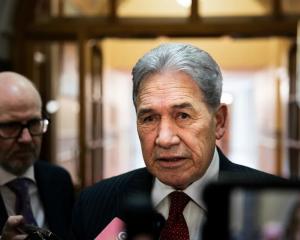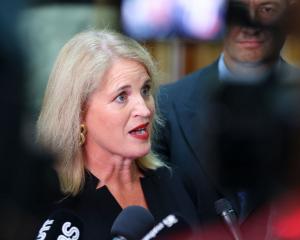
This morning Justice Minister Andrew Little released the latest version of the Cannabis Legislation and Control Bill, which sets out what a legal market for personal use would look like.
Voters will decide whether to legalise cannabis for personal use, with a referendum planned alongside the September 19 election asking voters to support or oppose the bill.
Many details of the proposed framework have already been released, but today's release includes new details including about proposed taxes and punishments.
The cap on national production would be set by a new national cannabis authority with a view to reduce overall consumption and draw users away from the black market.
To counter corporate monopolies, one producing business would not be able to contribute more than 20 per cent of the national supply.
The authority would also allocate share of cannabis production to ensure that Maori and economically deprived areas are able to fairly participate.
People with cannabis convictions for personal use would not be automatically disqualified from getting a licence to produce cannabis.
The authority, advised by an independent expert committee, would also set prices and the limit on THC potency.
Legal cannabis would also be introduced in stages, firstly with dried or fresh cannabis and cannabis seed, and products such as edibles would be considered later.
Cannabis-infused beverages, injectables, or products that included tobacco or alcohol would be banned.
The fines or jail time would aim to cripple gangs or even encourage them to turn their illegal trade into a legal one.
A $100,000 fine could be imposed on a business or two years' jail for an individual for unlawful cannabis sales, or the offer of such sales.
This ramps up to a $150,000 fine for a business or four years' jail for an individual for underage sales.
Personal use fines are much smaller: a $200 to $500 fine for buying or possessing too much, or for smoking a joint in public, and $100 to $200 fine for underage possession.
Blowing joint smoke into an underage persons face could see a fine between $500 and $1000.
And a legal cannabis industry would be hit with excise tax, GST and levies ring-fenced for drug treatment and education programmes - though the level of the tax or levies have not been specified.
The Justice Minister will determine the levy in consultation with the Finance Minister.
Other details of the proposed framework have been previously released and include a purchase age of 20 or older, a ban on public consumption, advertising and online sales, and a daily purchase limit of 14 grams of dry leaves a day - or the equivalent of about 40 joints.
Cannabis use would only be legal at home or in specialised bars, where products in plain packaging and with health warnings could be bought.
Limited home-growing (two plants for a household of one, or up to four for a household of at least two 20+-year-olds) would also be allowed.
The aim of the bill is to reduce cannabis-related harm, and a key question for voters is whether they think the status quo is better at minimising such harm than the proposed framework.
The wording of the cannabis referendum question has also been confirmed as a straight Yes/No question:
- Do you support the proposed Cannabis Legalisation and Control Bill?
- Yes, I support the proposed Cannabis Legalisation and Control Bill
- No, I do not support the proposed Cannabis Legalisation and Control Bill
The Government has described the referendum as binding, and political parties have said they will honour the result of the referendum.
But the bill can be progressed, changed or left to languish on the Order Paper, depending on the make up and will of the next Parliament.











